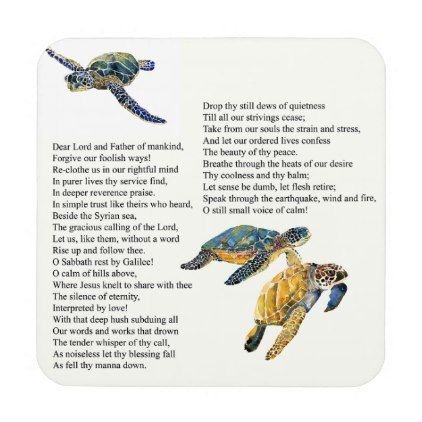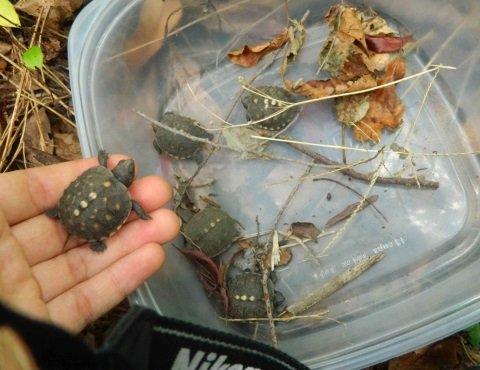Exploring The Diet Of Box Turtles: Can They Eat Fruits And Vegetables?
Can box turtles eat fruits and vegetables? Absolutely! These delightful creatures may be primarily known for their love of insects, worms, and small animals, but they also have a taste for the goodness that fruits and vegetables offer. Providing a varied and balanced diet is crucial for the health and well-being of your box turtle. In this article, we dive into the world of box turtles and explore the benefits of incorporating fruits and vegetables into their diet. So, if you’ve ever wondered about the perfect menu for your shelled friend, keep reading to learn more!
Can Box Turtles Eat Fruits and Vegetables?
Box turtles are fascinating creatures known for their unique ability to adapt to various environments. As omnivores, they have a diverse diet that includes both animal matter and plant material. While box turtles primarily feed on insects, worms, snails, and other small invertebrates, they can also consume a variety of fruits and vegetables. In this article, we will delve into the topic of whether box turtles can eat fruits and vegetables, explore the benefits of incorporating these foods into their diet, and provide guidelines on the types of fruits and vegetables that are safe for them to consume.
1. The Importance of a Balanced Diet for Box Turtles
A well-balanced diet is crucial for the health and longevity of box turtles. In the wild, they have access to a wide range of foods, including plants, fruits, insects, and small vertebrates. Replicating this diverse diet in captivity is essential to ensure they receive all the necessary nutrients for optimal growth and development. While animal protein is important for box turtles, incorporating fruits and vegetables into their diet can provide additional vitamins, minerals, and hydration.
The Benefits of Feeding Fruits to Box Turtles
Fruits offer a variety of benefits for box turtles, including:
– Nutritional Value: Fruits are rich in vitamins, minerals, and antioxidants that contribute to overall health. They provide essential nutrients such as vitamin C, vitamin A, potassium, and fiber.
– Hydration: Many fruits have high water content, which helps keep box turtles hydrated, especially during hot weather or in drier environments.
– Enrichment: Offering different fruits can provide mental stimulation and enrichment for box turtles, as they get to experience a variety of tastes and textures.
The Benefits of Feeding Vegetables to Box Turtles
Vegetables also play an important role in a box turtle’s diet, offering the following benefits:
– Nutrient Variety: Vegetables provide a wide range of nutrients, including vitamins (such as vitamin K and vitamin E), minerals (such as calcium and iron), and dietary fiber.
– Leafy Greens: Leafy green vegetables, such as kale, spinach, and collard greens, are particularly beneficial due to their high calcium content. Calcium is essential for maintaining strong shells and preventing metabolic bone disease.
– Digestive Health: Vegetables rich in fiber help promote healthy digestion and prevent constipation in box turtles.
2. Safe Fruits for Box Turtles
When offering fruits to box turtles, it is important to select safe options that are suitable for their digestive system. Here are some fruits that box turtles can safely consume:
– Apples: Remove the seeds and core since they contain traces of cyanide. Offer small pieces of the flesh.
– Berries: Blueberries, strawberries, raspberries, and blackberries are all safe options that are rich in antioxidants.
– Melons: Watermelon, cantaloupe, and honeydew melons are hydrating and can be offered in small, bite-sized pieces.
– Bananas: High in potassium and easy to digest, bananas are a great occasional treat for box turtles.
– Grapes: Cut grapes into small pieces to avoid choking hazards. They are a good source of hydration and contain antioxidants.
3. Safe Vegetables for Box Turtles
Vegetables should also be an integral part of a box turtle’s diet. Here are some safe vegetables that you can include:
– Leafy Greens: Dark leafy greens like kale, collard greens, and mustard greens provide essential vitamins and minerals. Rotate between different greens to ensure a well-rounded diet.
– Squash: Butternut squash and yellow squash can be cooked and mashed for easy consumption. They are rich in vitamins A and C.
– Carrots: Carrots are high in vitamin A and can be shredded or finely chopped to make them easier for box turtles to eat.
– Bell Peppers: Offer small slices of bell peppers for a dose of vitamin C and added color to the turtle’s diet.
– Green Beans: Blanching green beans makes them softer and more manageable for box turtles to eat. They provide fiber and vitamins.
4. Moderation is Key
While it’s beneficial to include fruits and vegetables in a box turtle’s diet, it’s important to practice moderation. Turtles have specific nutritional requirements, and an excessive amount of fruits and vegetables may imbalance their diet. Additionally, some fruits and vegetables can be high in sugar, which can lead to weight gain or other health issues if consumed excessively. The ideal ratio is approximately 70% animal matter and 30% plant matter.
5. Preparing Fruits and Vegetables for Box Turtles
Proper preparation of fruits and vegetables ensures safe consumption for box turtles. Here are some guidelines to follow:
– Wash thoroughly: Rinse fruits and vegetables to remove any pesticides, dirt, or bacteria.
– Cut into appropriate sizes: Cut fruits and vegetables into small, bite-sized pieces that are manageable for your box turtle to eat.
– Remove seeds, pits, and cores: Some fruits, like apples and peaches, have seeds or pits that can be toxic to turtles. Remove these parts before offering them.
– Cook when necessary: Vegetables such as squash or carrots can be cooked or steamed to soften them and make them easier to digest.
6. Observing Your Box Turtle’s Reactions
When introducing new fruits and vegetables to your box turtle’s diet, it’s important to observe their reactions. Some turtles may have individual preferences or sensitivities. Look for any signs of allergic reactions, digestive upset, or refusal to eat certain foods. If you notice any adverse effects, remove the food from their diet and consult a veterinarian if necessary.
7. Conclusion
In conclusion, box turtles can indeed eat fruits and vegetables as part of a balanced diet. Fruits and vegetables provide vital nutrients, hydration, and enrichment for these fascinating reptiles. By offering a variety of safe options, such as apples, berries, leafy greens, and squash, you can enhance the nutritional value of their diet and promote their overall well-being. Remember to practice moderation, prepare the foods appropriately, and be attentive to your turtle’s individual preferences and reactions. With proper care and attention to their dietary needs, box turtles can thrive on a diverse and nutritious diet.
Frequently Asked Questions
Can box turtles eat fruits and vegetables?
Yes, box turtles can eat fruits and vegetables as part of their diet. These nutritious foods are a great addition to their primary diet of insects and other small invertebrates. It is important to offer a variety of fruits and vegetables to ensure a balanced diet. However, it is essential to avoid feeding them any toxic plants or foods that are high in sugar or salt. Additionally, it is crucial to chop or grate the fruits and vegetables into small, manageable pieces for easy consumption.
What fruits can box turtles eat?
Box turtles can enjoy various fruits, including berries, melons, apples, and bananas. These fruits provide essential vitamins and minerals and can be offered as occasional treats. Always remember to remove any seeds, pits, or peels that may pose a choking hazard or contain harmful substances.
Can box turtles eat vegetables?
Yes, box turtles can eat a variety of vegetables. Some examples of suitable vegetables include leafy greens like spinach and kale, carrots, squash, and bell peppers. These vegetables provide important nutrients such as fiber and vitamins. Avoid feeding them onions, garlic, or any vegetables that are toxic to turtles.
Should I feed my box turtle only fruits and vegetables?
No, while fruits and vegetables are a beneficial part of a box turtle’s diet, they should not be the only food provided. Box turtles are omnivores, and their diet should also include protein from sources like insects, worms, and even small amounts of cooked meat. A balanced diet that includes a mixture of fruits, vegetables, and animal protein is essential for their overall health.
How often should I offer fruits and vegetables to my box turtle?
Fruits and vegetables should be offered to box turtles a few times a week. However, it is crucial to monitor their consumption and adjust the frequency accordingly. Too much fruit can lead to diarrhea or other digestive issues, so it should be given in moderation. Always ensure that fresh water is available to keep your box turtle hydrated.
Are there any fruits or vegetables that are toxic to box turtles?
Yes, there are certain fruits and vegetables that can be toxic to box turtles. Avoid feeding them avocados, which contain a substance called persin that is toxic to many animals, including turtles. Onions and garlic should also be avoided, as they can cause anemia in turtles. Furthermore, it is important to research specific plants before offering them to your box turtle to ensure they are safe for consumption.
Final Thoughts
Box turtles can indeed eat fruits and vegetables as part of their diet. These nutritious foods provide essential vitamins, minerals, and fiber that contribute to their overall health. However, it is important to note that box turtles are omnivores and require a balanced diet that includes a variety of foods such as insects, worms, and vegetation. While fruits and vegetables can be beneficial, they should not be the sole components of their diet. Therefore, providing a diverse range of food options is crucial to meet the nutritional needs of box turtles. Can box turtles eat fruits and vegetables? Absolutely, but it is essential to ensure a well-rounded and varied diet for their overall well-being.

